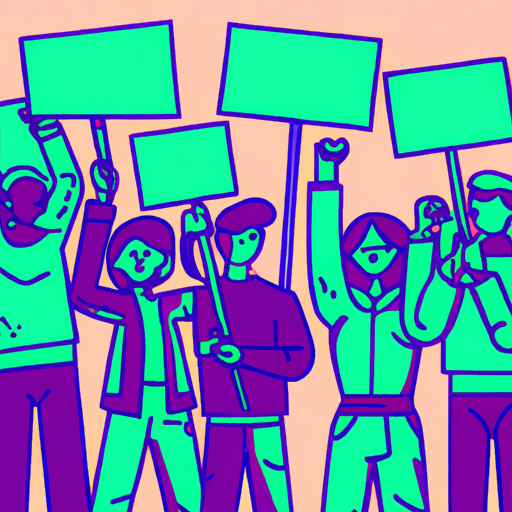Climate activists have taken their campaign up a notch this summer, targeting the opulent lifestyles of the ultra-wealthy that contribute to significant greenhouse gas emissions. Demonstrators have spray-painted superyachts, obstructed private jets, and disrupted golf courses as part of their campaign against the carbon-intensive practices of the rich.
This intensification of climate activism comes as the planet continues to experience dangerous levels of warming, leading to more severe weather events, including extreme heatwaves, floods, storms, and wildfires. Activists are now shifting focus from large corporations, particularly fossil fuel companies, to the affluent, protesting their excessive carbon footprint.
Activists from the Extinction Rebellion and Futuro Vegetal groups spray-painted a $300 million superyacht belonging to Walmart heir, Nancy Walton Laurie. In Switzerland, around 100 activists disrupted Europe’s largest private jet sales fair in Geneva, chaining themselves to aircraft gangways and entrances. Other protests have taken place in Germany and Spain, with activists highlighting the heavy water usage associated with maintaining golf courses during dry spells.
According to a 2021 report by the non-profit organization Oxfam, if all greenhouse gas emissions were attributed to the individuals responsible for producing them, the wealthiest 1% of the population will account for approximately 16% of emissions by 2030. This alarming statistic underscores the severe environmental impacts of the lifestyles of the rich, and the need for urgent action.
However, some warn that focusing on individual behavior, even if it is the behavior of the ultra-wealthy, risks diverting attention from the larger problem of systemic carbon pollution by fossil fuel companies. They argue that the solution lies in reducing carbon-based energy use across all income levels.
Activists and experts are split on the effectiveness of such protests in driving behavior change among the wealthy. However, some believe that public shaming can be a powerful tool in influencing people and making them more aware of the consequences of their actions. The increasing regulation of private jets in countries such as France and the Netherlands also points towards a potential shift in attitudes towards luxury emissions.

